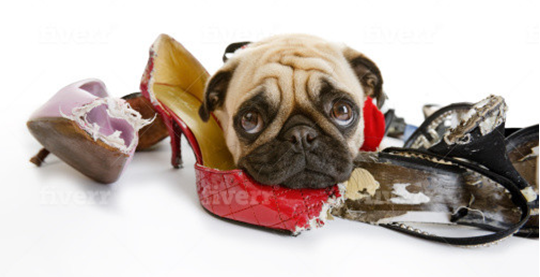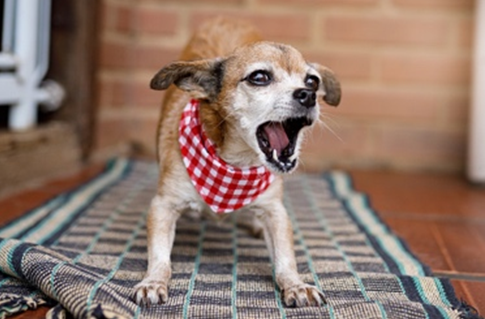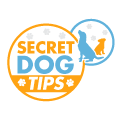Top Dangerous Foods For Your Dog To Avoid
Just a friendly reminder on some toxic foods that your dog needs to avoid:
Chocolate and Caffeine
Grapes and Raisins
Alcohol and Raw Bread Dough
Xylitol (artificial sweetener found in sugar free candy and baked goods, gum as examples)
Onions and Garlic
All of these can be lethal…so if you suspect your dog has eaten any of these…take them to the vet immediately.
Why Do Dogs Chew Shoe And Foot Coverings?

You get very pained on getting home, only for you to discover that your dog has spoiled and destroyed your beautiful and most expensive shoes. Dogs chewing shoes looks very meaningless to a lot of people, but they have their reasons. These purposeful reasons may include;
- Cutting adult teeth
Puppies chew on almost everything to relieve them of the pain of cutting adult teeth. They also don’t know yet that not
everything should be put in their mouth. You have to train your dog not to chew during puppyhood by giving him enticing dog treats, and also keeping away shoes out of their reach and praising them for choosing a right chewing object. Nevertheless, chewing is so important in puppy behavior, it is improbable that your puppy will stop chewing on shoes until he is done cutting his adult teeth.
- To seek attention
When you shout at your dog when he chews on your shoes, you may be teaching him that chewing is a way to seek attention. Dogs are very fast learners, and if your dog learns that chewing a shoe gets a stronger reaction than chewing the right toy, he’s much more likely to take off running with your shoe.
In order to avoid this kind of attention-seeking behavior, give your dog more attention when he’s being calm or chewing on the right toy. When they grab your shoe, collect your shoe from them without speaking or making eye contact and walk away.
- To eliminate Anxiety and Boredom
Chewing eliminates nervous energy which gives bored dogs something to do. When your dog is left alone in the house for a long period of time, it decides to chew shoes as a result of sheer boredom. Some dogs chew when they’re anxious during storms and separations. If your dog is anxious and chewing, you provide him with a crate which would make him more secured. To take your dogs out of boredom, you also need to provide them with treat-releasing dog toys or probably hire a dog walker.
- To enhance smelling
Dogs are driven first and foremost by their nose; their sense of smell is very sharp and captivating. Even the little interesting smell can make your dog to chew on your shoes. Leather shoes may smell like food to dogs, and any shoe you’ve worn smells like you, making it immediately alluring. Shoes usually pick up a diversity of interesting scents and chewing on your shoes may just be your dog’s way of getting to know what you’ve been doing all day.
Why Do Dogs Bark?

Barking is a vocal communication that dogs use to create attention depending on the situation. It’s an action that cannot be stopped but it can be controlled. Dogs bark for a number of reasons which may include;
- For Alarm; dogs are known to always bark at any noise or object that gets their attention or frighten them. They do these to seek the attention of their owners.
- For Protection, they activate excessive barking at any sight of a person or animal that comes into their area. This barking would be very aggressive this time.
- For Loneliness; when dogs are left alone for a long period of time, they become bored and sad. They would bark more often because they are unhappy.
- For Play; they bark when greeting people or other animals and they also wag their tails alongside with jumping.
- For expression of Anxiety; dogs with anxiety often bark excessively when they are left alone. They also usually exhibit other symptoms as well, such as pacing, destructiveness, depression. Some dogs seem to bark just to hear the sound of their voices and also often make repetitive movements as well, such as running in circles or along a fence.
HOW TO CONTROL EXCESSIVE BARKING
Teaching your dog how to bark less will take time, work, practice, and consistency. It won’t happen overnight, but with proper techniques and time, you can see progress
- If your dog barks aggressively than usual, the first thing is to consider the reason why he’s barking that way. You have to also take note of how your dog barks and the type of sound it is, so you can be able to address the fundamental emotional causes of its barks better.
- Speak with calmness without yelling at the dog, when you shout on the dog, he would continue to bark more thinking you are enjoying it.
- Most dogs don’t know what you want when you’re shouting at them to “shut up.” So train your dog to understand the word “Quiet!”
If the excessive dog barking is more deep-rooted and cannot be self-controlled, however, seek help from either a trainer for noisy puppies and young dogs, or a behaviorist who can help with continuous barking or howling problems in older dogs.
